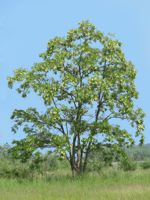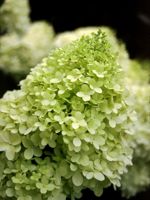Mon-Fri 9am - 5pm Mountain time
Black Locust vs Limelight Hydrangea
Robinia pseudoacacia
Hydrangea paniculata Limelight
SOLD OUT
NOT AVAILABLE THIS SEASON - MIGHT RETURN
Black Locust is an attractive tree. Its distinctive leaves are made of about a dozen bright green leaflets. It also notable for its fragrant white flowers, which smell of citrus.
Black Locust can grow in many situations, but prefers dry areas with lots of sun. It is robust and is an excellent choice for establishing shade in dry, open areas.
Important note: Much of the Black Locust is toxic to humans and livestock, including seeds, bark, and leaves.
Limelight Hydrangea is a flowering shrub that is known for its green flowers. As they mature, the flower colour changes from a pale green to a creamy white, followed by shades of pink and red. Hydrangea flowers persist longer compared to other flowering shrubs, blooming from late July into fall. They are a popular choice for flower arrangements.
The Limelight Hydrangea can be grown as a stand alone shrub, as a hedge, or incorporated into a flower garden. Blooms occur on new wood, so regular pruning is encouraged in late winter. This is an award winner from the Proven Winners® collection.
Black Locust Quick Facts
Limelight Hydrangea Quick Facts
Toxicity: toxic to dogs, cats, and horses

